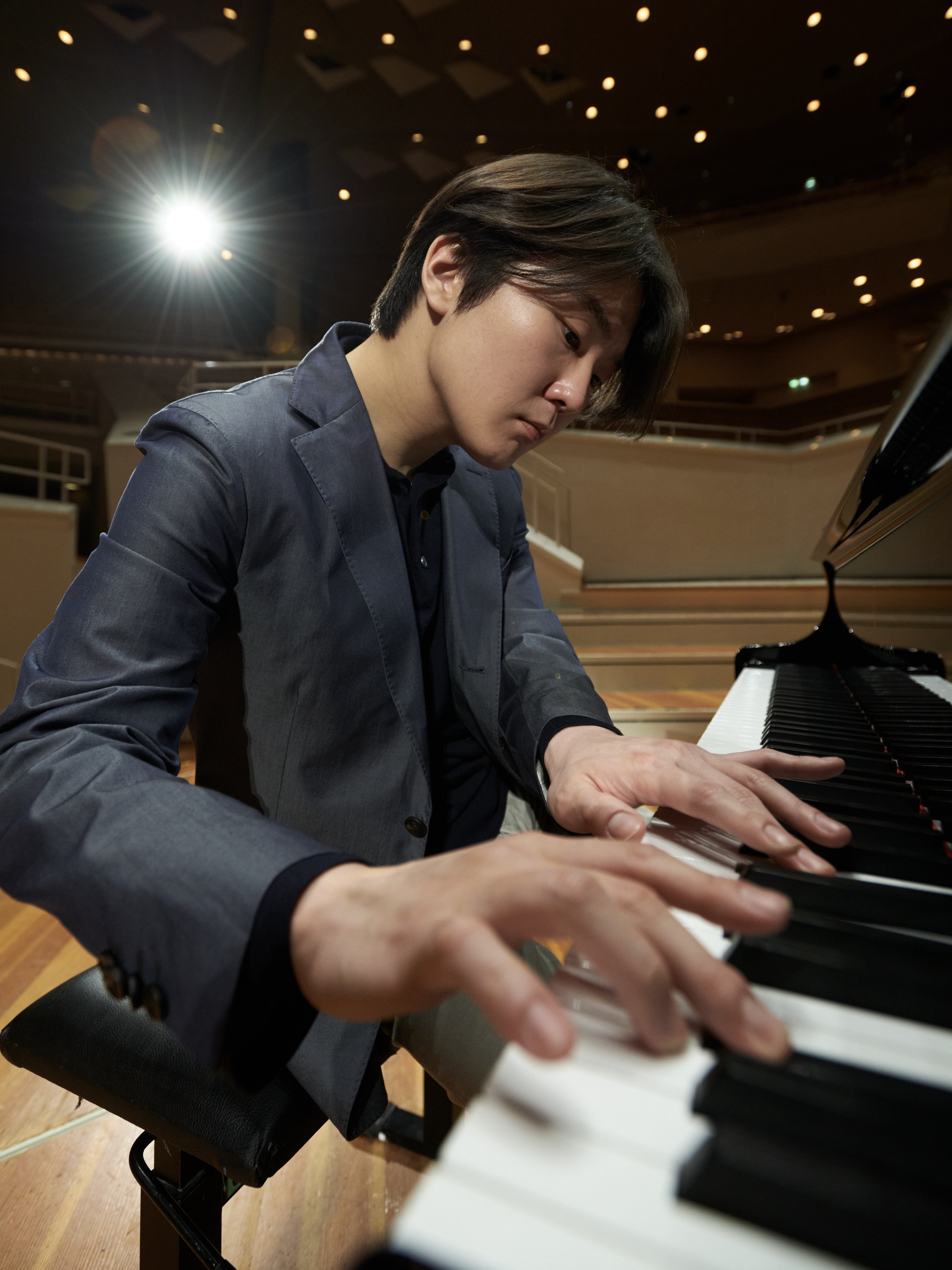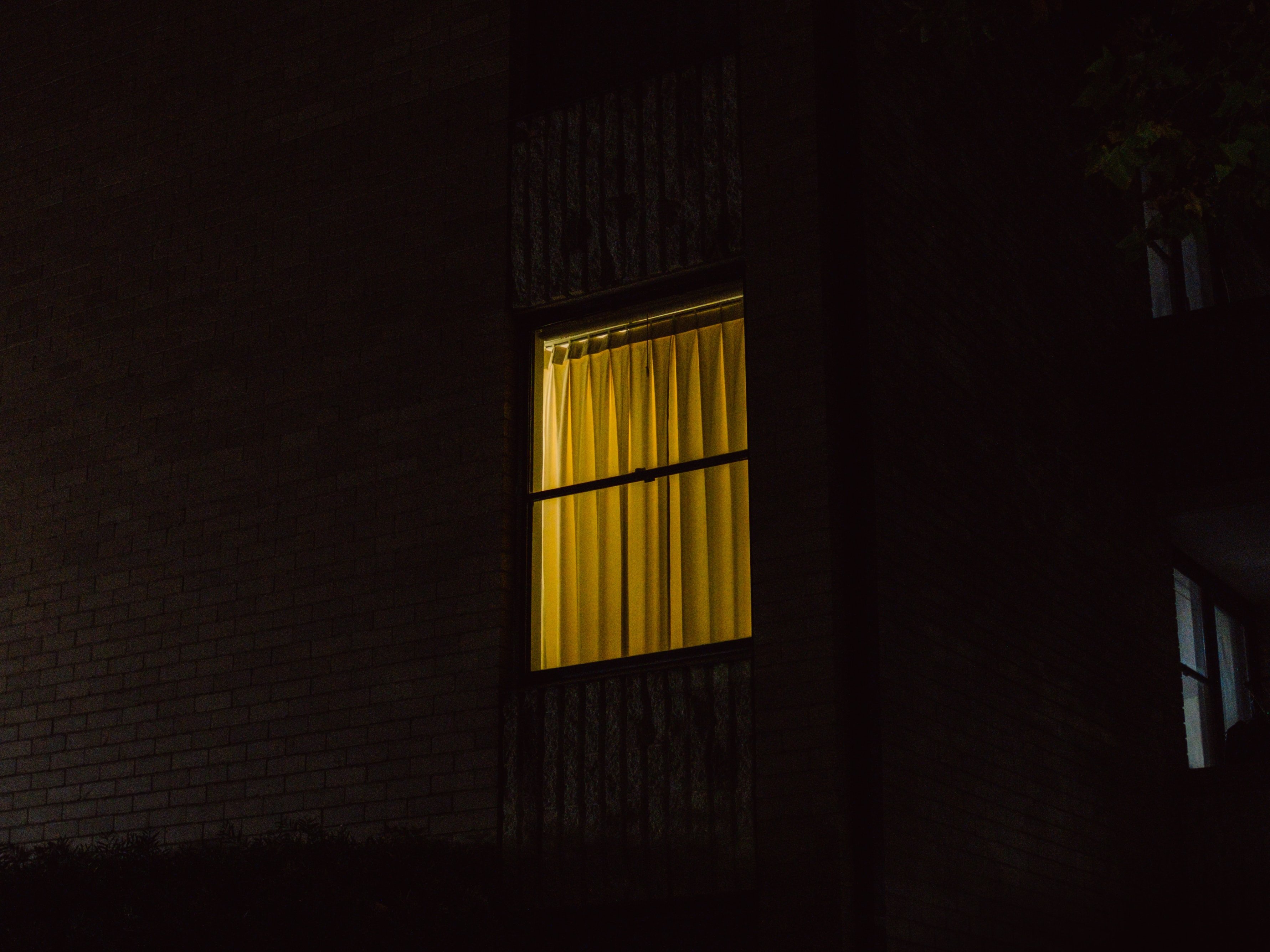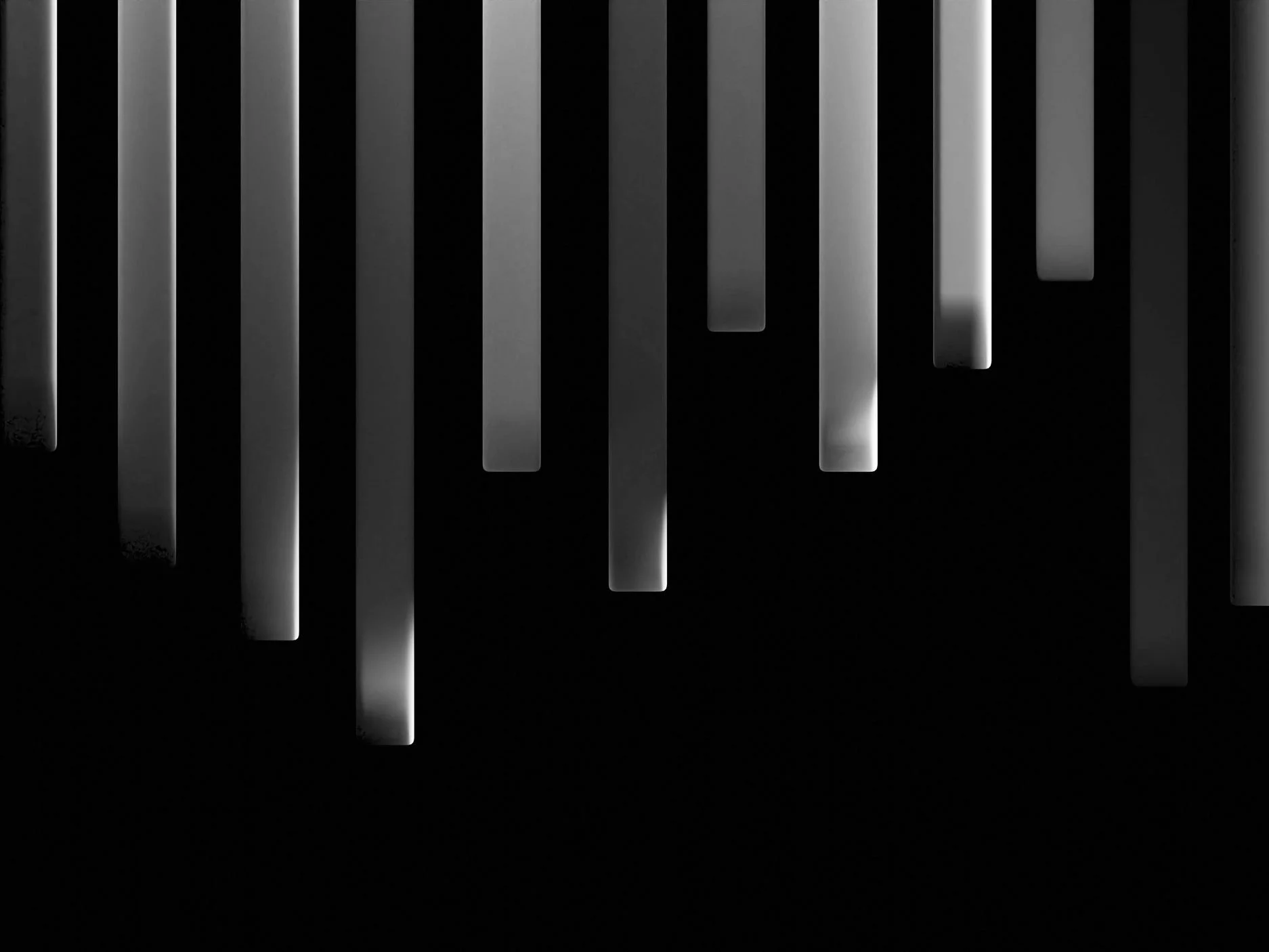- Interview

As the winner of the legendary Chopin Competition and a “poet at the piano” (Simon Rattle), Seong-Jin Cho has made a name for himself internationally. He will now accompany the Berliner Philharmoniker as Artist in Residence through the 2024/25 season. In our interview, you can find out how microphones make him nervous, that a pianist’s work is never done, and why the sound of the piano cannot be replaced by artificial intelligence.
Mr Cho, in our magazine Phil, we regularly ask members of the Berliner Philharmoniker what profession they would have chosen if they hadn’t become musicians. What about you?
That’s a very difficult question. If I had chosen a different career path, I would probably have opted for something that involved working with my hands. And I think my personality is rather calm and introverted. Perhaps I would have become a doctor or a surgeon.
A different musical career would also have been a possibility for you.
I played the violin for six years as a hobby, and my violin teacher in Korea really encouraged me to continue on this path. There was a competition in Korea that had a piano section and violin section. I took part with both instruments and won the third prize in the violin competition. I didn’t win anything for piano. But I always felt more comfortable with the piano, and I also found it easier to practise for longer periods than on the violin.
So the piano was your instrument of choice right from the start?
If I said the piano always inspired me, it would probably be a lie. I was only six years old when I started playing the piano and violin. I started playing the piano because of my parents. It was very normal thing in Korea to learn an instrument. I did so many different kinds of things, including sport and paintings, but classical music was the only thing I enjoyed when I was a child. Of course, I didn’t want to practice too long, but still, I enjoyed playing and performing, and also listening. So, from the beginning, I wanted to become a professional musician and especially a pianist. Although I didn’t know what that meant. I just watched videos of pianists playing the piano and thought it was cool.
How would you describe your training in Korea?
The atmosphere was quite competitive. There were so many musicians who wanted to be successful. I attended Seoul Arts High School and there were about 50 pianists in my year. Everyone practised more than I did – at least three or four hours a day. I don’t criticise this ambition at all. Because of that environment, I think I was able to form myself and I become more passionate about music. I hate competition, but if you are surrounded by such passionate students, you’re naturally inspired by them.
You mentioned earlier that you are introverted. Is performing on stage your way of communicating your emotions?
I’m a rather shy person, so I don’t express my thoughts or my feelings to others easily. When I have to say something to the audience or when I have to grab the microphone, I feel I start to become nervous. But when I play the piano, I feel very free. Then I can do whatever I want.
How important to you is musical communication with the audience?
I probably care more about the composer than the audience. It may sound a little selfish, but I believe that my work, my job, is to understand more about the music that composer wrote and convey this music or emotion or this language to the audience.
It’s not easy to really understand music. Do you have a strategy for this?
It’s a long process. First, I really try hard to understand the score, then I study the background of the piece and the composer. There are so many ways to play a sonata or a concerto by Beethoven, for example. So my interpretation changes over the years. I think this is the most fascinating part of being a musician or performer.
Some people may be surprised: you are a famous pianist who has won the Chopin Competition and performs with major orchestras – and yet you still want to go further. Do you have a long-term goal on this journey, an artistic vision?
Every pianist has a different sound, and it’s very difficult to change it – for example, it is really difficult to become a tenor if you have a bass voice. But you can develop your sound. It’s like a lifelong journey; there are no ultimate achievements in this profession. Winning some competitions or playing with prestigious orchestras is really wonderful. And I’m honoured to be Artist in Residence with the Berliner Philharmoniker. But my real goal has to be related to musical depth.
What does it mean in technical terms to develop one’s own sound as a pianist? How do you go about it?
This is difficult to explain. Basically, every concert evening is different from the one before, which is why music-making is so exciting. As for the sound of a pianist as a whole – I think it changes like a human face. You don’t realise that you’re getting old, but when you look in the mirror, suddenly you notice that your face has changed. That sounds magical, but there is something magical about the sound of a piano. No artificial intelligence will ever replace it.
When you think about your musical development, do you also have a plan for your repertoire?
I am very fortunate to have spoken to many great artists since I was a teenager. And there’s one thing in common that they advised me – that I have to learn new pieces before I reach 40. When you’re over 40, it is a little bit harder to learn new pieces. So when I was 17, I wrote down all the repertoire that I wanted to learn before I turned 40. I still have that notebook. I’m turning 30 and I think I’ve done almost half of it.
That sounds remarkably disciplined.
It’s like learning languages. If you’re young enough, it’s much easier to learn. But I don’t have a detailed plan for the order. Next, I would like to learn more Beethoven and Brahms, and I always wanted to perform the complete piano music by Ravel, which I’ll be playing here in Berlin. I’m so fortunate as a pianist, because there’s so much repertoire.
During your time as Artist in Residence with the Berliner Philharmoniker, we will learn a lot about your current repertoire focal points. For example, there is a kind of Hungarian chamber music evening with Brahms, Ligeti and Bartók. How did this idea come about?
First of all, it was like paradise for me because I could curate the programme however I wanted. The chamber music evening you mentioned is actually intended as a panorama of Hungarian musical styles. Brahms is known to have been inspired by this music, as his Hungarian Dances most clearly show. I love everything by Brahms, and the clarinet trio in particular, which I have chosen to play, is incredibly beautiful. I also wanted to play with instruments other than strings. The Ligeti work for violin, horn and piano has an exciting instrumentation and fits perfectly. Finally, there’s the Bartók Quintet, which I discovered as a 19-year-old when I was studying in Paris. It is a very early piece that is not played often and doesn’t sound like typical Bartók. But still you can feel Bartók’s musical future. I hope the audience will enjoy this programme.
You mentioned another unusual project: the performance of all of Ravel’s piano works in one evening. Isn’t that a very bold plan?
It will definitely be very strenuous for me, both physically and mentally, which is why there will be two intervals. But I’ve always wanted to do this programme. And 2025 is the 150th anniversary of Ravel’s birth, so I thought it would be a nice way to celebrate.
Ravel had a rather detached, even enigmatic personality. Do you think that a complete performance of his piano music like this brings us closer to Ravel the man?
I think Ravel was a perfectionist. His music is very different from Debussy’s, which is more imaginative and Romantic, in a way. Ravel, on the other hand, was a sharp thinker with very clear ideas. And then there is this incredible wealth of colour in his music – even his piano music often has an orchestral sound.
But is it also emotional music? Or are emotion and perfection mutually exclusive?
I think you can be emotional in many ways. For example, when I play Tchaikovsky’s First Piano Concerto, I see a person crying loudly in front of me. When I play Brahms, especially his late works, I imagine I can feel that the person is so sad, almost depressed. But he doesn’t cry; it’s very inward-looking. And Ravel’s music also has a very emotional effect on me. Here I imagine a person who smiles gently, but there are tears in his eyes. There are so many kinds of emotion in our life.
This is also demonstrated by the two solo concertos that you will be playing with the Berliner Philharmoniker during your residency, which could hardly be more contrasting in their expression: Shostakovich’s First Piano Concerto and Beethoven’s Fifth Piano Concerto.
When I was asked which concertos I would most like to play with the Berliner Philharmoniker, it was clear to me that a work from the German repertoire should be included. That’s how I came up with the Beethoven concerto, which I’ve performed since I was a teenager, and which I’m sure the Berliner Philharmoniker will play wonderfully. What I like about Shostakovich’s music is that it is very sarcastic. I like dark humour and dark comedy, and my friends say that my personality is also somewhat sarcastic. This work, however, has not only dark humour, but also lyrical depth.
How important is it to you that this is actually a double concerto for piano and trumpet?
I also liked that, because Guillaume Jehl [principal trumpet of the Berliner Philharmoniker: ed.] will play the trumpet part in our performance. I know him from our first tour together, and I’m really looking forward to playing the work with him.
You are referring to your first experience with the Berliner Philharmoniker. That was in 2017, when you stood in for Lang Lang – first in Berlin, then on Simon Rattle’s last tour of Asia. Then in November 2023, you played with the orchestra in Seoul under the direction of Kirill Petrenko. How has your relationship with the Berliner Philharmoniker developed during this time?
I’d have to say it’s very different. When I made my debut, I was 23 and had just moved to Berlin. I was very nervous and had hardly any friends in the orchestra yet, except for Daishin Kashimoto and Emmanuel Pahud, who I knew from the festival of Salon-de-Provence. I got to know the orchestra better during the first tour, which was really fun. In 2020, we also played a joint online concert with Andris Nelsons during the pandemic – without an audience, which was a special experience for me. And finally there was the guest performance in Korea with maestro Petrenko, which was a great pleasure for me. I have the greatest respect for this orchestra, and I feel much more comfortable with it today than I did six years ago. I think they’re all great musicians and great human beings.
Seong-Jin Cho about his concerts in Korea with the Beliner Philharmoniker
Seong-Jin Cho was born in Seoul in 1994 and gave his first concert at the age of 11. He studied in his home town, and from 2012 to 2015 under Michel Béroff in Paris. In 2011, he won third prize at the International Tchaikovsky Competition in Moscow, and in 2015, he attracted worldwide attention when he won the 17th International Chopin Competition in Warsaw. Since then, he has performed at major concert halls and with the world’s leading orchestras.

Brightening up sleepless nights
The mysteries of the “Goldberg Variations”

A short piano lexicon
Prélude, nocturne, sonata and étude – in our short piano lexicon, we introduce you to the major genres of piano music one at a time.

Ludwig van Beethoven the pianist
Ludwig van Beethoven was a piano prodigy; he enjoyed the greatest successes of his early career as a pianist. However, as his hearing deteriorated, this changed.